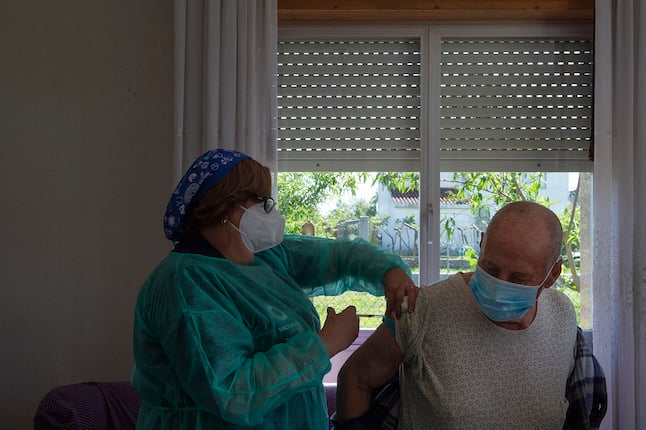The Public Health Commission decided not to wait until October 4th, the original date that the Health Ministry said it would make this decision on, and to start giving the third doses “immediately”.
The Ministry of Health justified its decision in a statement saying that those in care homes were “fragile, had multiple pathologies and lived in closed environments”.
Castilla-La Mancha was the first region to ask the Health Ministry to inoculate those in care homes with a third dose, just last week. A further six regions then demanded the same.
Health Minister Carolina Darias first said that third doses would only be given to those who were immunosuppressed, but this has now been extended to those in care homes too.
READ ALSO: Spain to approve third Covid-19 vaccine for immunosuppressed people
As well as being given to those with organ transplants and those suffering from blood cancers, a third Covid-19 dose will now also be administered to people on hemodialysis or dialysis, those undergoing treatment for cancer, and those over the age of 40 years with Down’s syndrome.
Darias confirmed that this move is in line with the recommendations of the European Medicines Agency (EMA).
She also stressed on Wednesday that 75 percent of the Spanish population had already received the complete vaccine schedule and encouraged those who were not vaccinated, to do so as soon as possible.
This Thursday, in addition to approving more groups for a third dose, the Public Health Commission also wanted to highlight that “At this moment, the main recommendation is to vaccinate all people older than 12”.
Not everyone is in favor of giving third doses of the Covid-19 vaccine, however. The World Health Organization (WHO) has warned that other countries who have less access to vaccines should be vaccinated first, so there is less inequality and less possibility for potential variants.
READ ALSO: Who still hasn’t been vaccinated against Covid-19 in Spain?



 Please whitelist us to continue reading.
Please whitelist us to continue reading.
Member comments